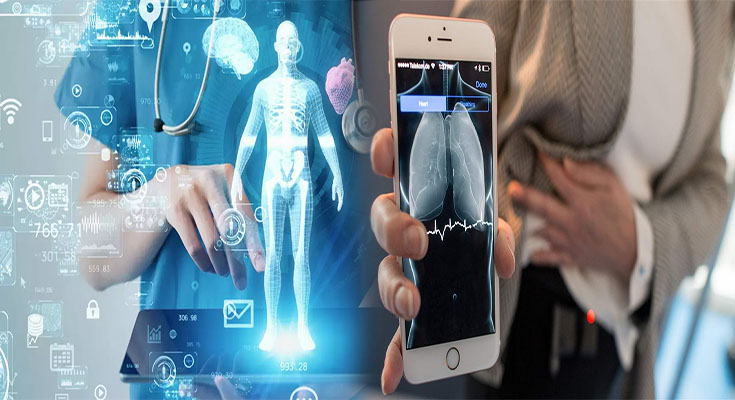Artificial Intelligence (AI) has revolutionized the healthcare industry, offering unprecedented opportunities to improve the diagnosis and treatment of various medical conditions. By leveraging advanced algorithms and machine learning techniques, AI has the potential to enhance accuracy, efficiency, and patient outcomes in healthcare settings. In this article, we will explore the key advantages of AI in diagnosing and treating medical conditions, shedding light on the transformative impact of this technology.
Precision Diagnostics
One of the most significant advantages of AI in healthcare is its ability to deliver precise and accurate diagnostic results. AI algorithms can analyze vast amounts of patient data, including medical images, genetic information, and clinical records, to identify subtle patterns and anomalies that may escape human detection. This capability enables healthcare providers to make more informed and timely diagnoses, leading to early detection of diseases and improved treatment outcomes.
Strategy: Implement AI-powered diagnostic tools, such as image recognition software and predictive analytics models, to enhance the accuracy and efficiency of medical diagnoses. Integrate AI algorithms into existing diagnostic processes to reduce errors, expedite diagnosis, and improve patient care.
Personalized Treatment Plans
AI technologies enable the development of personalized treatment plans tailored to individual patient needs and characteristics. By analyzing patient data, medical history, and genetic information, AI algorithms can identify optimal treatment options, predict treatment outcomes, and recommend targeted therapies for specific medical conditions. This personalized approach enhances treatment efficacy, minimizes side effects, and improves patient adherence to treatment regimens.
Strategy: Utilize AI-driven predictive models and treatment algorithms to customize treatment plans for patients based on their unique characteristics and medical profiles. Adopt precision medicine approaches that leverage AI to match patients with the most effective treatments and interventions, improving clinical outcomes and patient satisfaction.
Predictive Analytics for Disease Management
AI algorithms can analyze large datasets to predict disease progression, identify risk factors, and optimize treatment strategies for better disease management. By leveraging machine learning models, healthcare providers can forecast patient outcomes, anticipate complications, and intervene proactively to prevent adverse events. This predictive analytics capability empowers clinicians to make data-driven decisions, improve patient monitoring, and optimize resource allocation in healthcare settings.
Strategy: Implement AI-powered predictive analytics tools for disease risk assessment, patient monitoring, and treatment optimization. Use AI algorithms to identify high-risk patients, predict disease trajectories, and recommend preventive interventions to enhance patient outcomes and reduce healthcare costs.
Enhanced Medical Imaging and Interpretation
AI has transformed medical imaging interpretation by improving the accuracy and efficiency of radiological assessments. Through deep learning techniques, AI algorithms can analyze medical images, such as X-rays, MRI scans, and CT scans, with high precision and speed. This technology enables radiologists to detect abnormalities, classify conditions, and generate diagnostic reports more effectively, leading to quicker diagnosis and treatment planning for patients.
Strategy: Deploy AI-based imaging analysis tools, such as automated image segmentation, feature extraction, and diagnostic software, to enhance the interpretation of medical images. Collaborate with radiologists and imaging specialists to integrate AI solutions into radiology workflows, streamline image analysis, and improve diagnostic accuracy for better patient care.
Remote Monitoring and Telehealth
AI-powered remote monitoring technologies offer new opportunities for virtual healthcare delivery and remote patient management. By leveraging wearable devices, sensors, and mobile applications, AI can collect real-time health data, monitor patient vital signs, and provide timely feedback to healthcare providers. This remote monitoring capability enables clinicians to track patient progress, detect health changes, and deliver personalized care remotely, expanding access to healthcare services and improving patient outcomes.
Strategy: Integrate AI-driven remote monitoring and telehealth solutions into clinical practice to enable virtual consultations, remote patient monitoring, and telemedicine services. Leverage AI algorithms to analyze patient data, monitor health metrics, and provide real-time insights to healthcare providers for proactive intervention and personalized care delivery.
In conclusion, the advantages of AI in diagnosing and treating medical conditions are profound, offering healthcare providers innovative tools and strategies to enhance patient care, improve clinical outcomes, and advance medical research. By embracing AI technologies for precision diagnostics, personalized treatment planning, predictive analytics, medical imaging interpretation, and remote monitoring, healthcare organizations can harness the power of AI to revolutionize healthcare delivery and achieve better health outcomes for patients.





